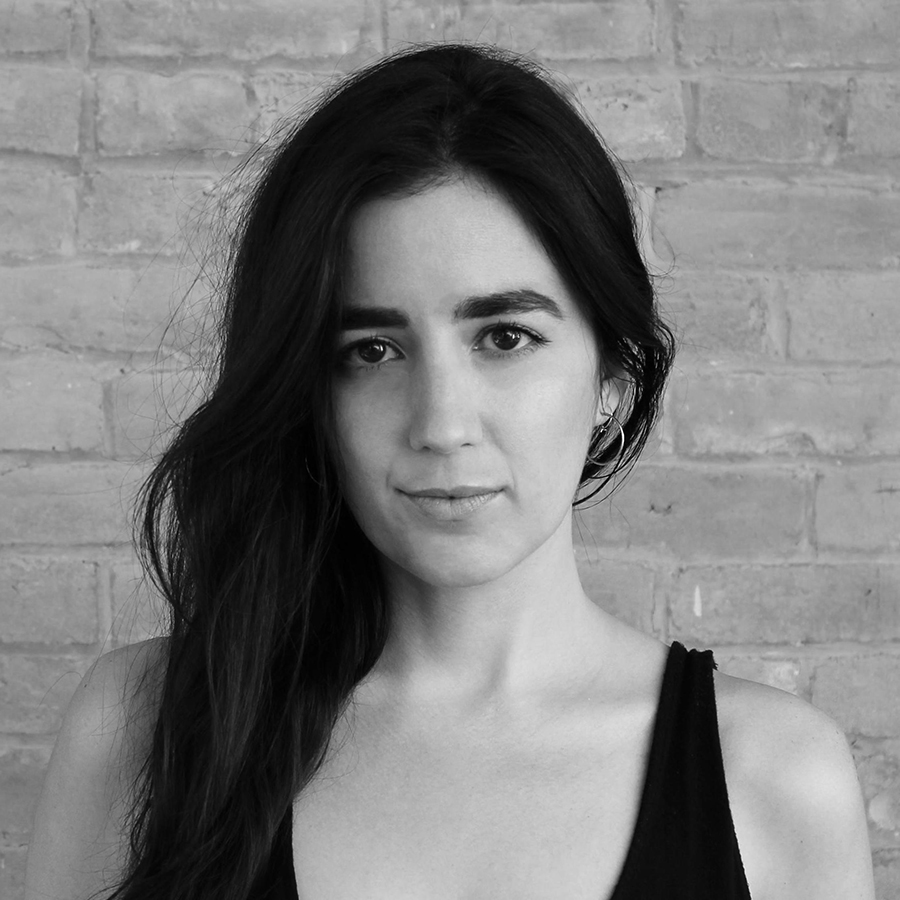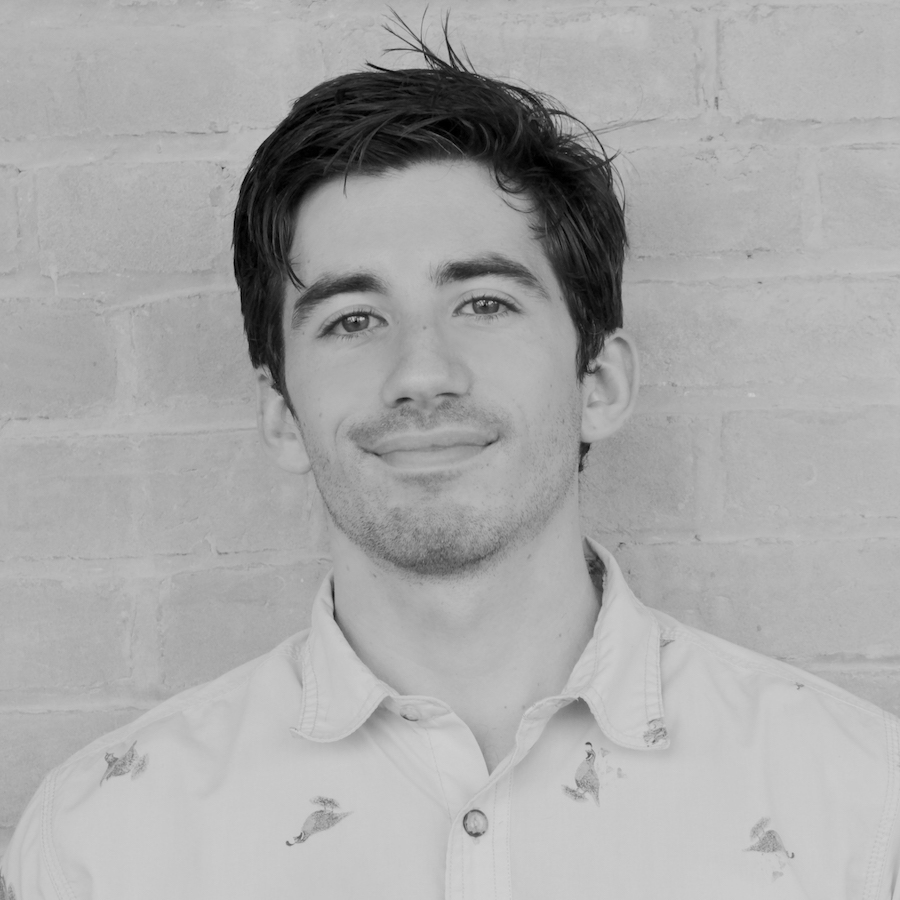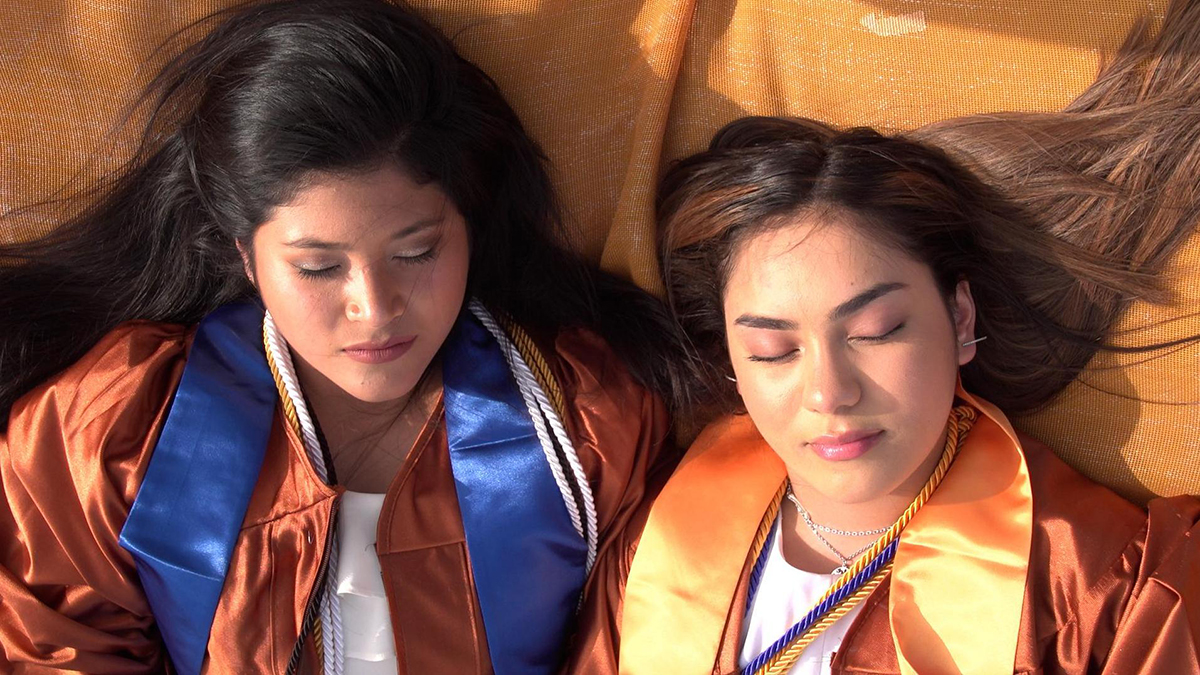Filmmakers Robie and Alejandro Flores premiered their documentary The In Between at the SXSW film festival in Austin, Texas over the weekend bringing the recently newsworthy border town of Eagle Pass into the spotlight, and offering a different view than what is typically seen in mainstream media. The In Between follows the story of Robie, the film’s director, as she spends time in her hometown processing the passing of her younger brother, Marcelo, while simultaneously providing insight into the lives of people living on the border.
LatinaMediaCo contributor, Jassyel Gomez, hopped on a Zoom with Robie and Alejandro Flores to discuss The In Between, filmmaking, creativity, and fronterizo culture.

Jassyel Gomez: What drew you to filmmaking?
Robie Flores: My dad loved movies and we’d always watch movies with him… [My older brother] Paco made his first movie when I was a junior in high school. He made it in Eagle Pass, with one of his friends from Eagle Pass. They just had a camera, they didn’t have many resources, but they managed to make a real movie, and they sold that movie – it got a little distribution deal, it went to a couple of festivals. So he really laid the groundwork for us to see that it was possible and we always fantasized that the four [of us would have] a sibling production company. It was just incredible to be able to make this movie together, it feels like we still did it with Mars. It has his footage in there, it has Paco’s creative work in there too, and it was amazing to all collaborate together.
Jassyel Gomez: How long did it take you to complete the film, and what did you learn during the process of filming, whether about yourself or the craft itself?
Robie Flores: I started in 2017 and I worked on it for a year by myself. In 2018, I convinced Alex to quit his corporate job to come home and make the movie with me, and in 2019, we got funding. Once we got institutional support, we had a timeline and we thought we were going to finish at the end of 2020, but then the pandemic came… Then, we slowly started to make it a personal story. At the beginning it was more about, what does it look like to live on the border through the eyes of the people that live there. It was very much us trying to be detached and show the border without us intruding, but then it just didn’t make sense, because we’re both from there. There’s no way to divorce ourselves from this story, it’s a very personal story.
Alejandro Flores: Basically, don’t shoot for a deadline to say that’s when you’re done with the film, finish it when you feel like you’ve gotten to the story that you’re happy with, that you feel like it’s true to what you’re trying to do. I think it’s very hard to do that [but] we learned the hard way. We shot for a deadline and the film wasn’t complete, it just wasn’t ready to be out into the world, and we didn’t get into any festivals.

Jassyel Gomez: The film’s title seems to reference the straddling of two cultures, but also the period of time between grieving a loss and finding your way to the other side of it. Would you agree with that interpretation?
Robie Flores: Yeah definitely, I had these words dancing in my head for months before I started the movie. The movie came because of the title. I wish I could know exactly what sparked it, but I feel like it was crossing the bridge with my mom. I was just thinking about being in this in between, and how nebulous it felt, being suspended in between time, physically, culturally, emotionally. It’s the space we are always living in as fronterizos. It also spoke to the in-between moments that our brother and Marcelo always focused on. The little moments in between the big moments in life that we’re always leading up to.
We get to use both sides, we get to pick what works from either side, and we get to create something new. It’s exciting. It’s enriching. And it’s something to be proud of.
Robbie Flores
Jassyel Gomez: What was your favorite part of making The In Between?
Alejandro Flores: The most challenging was just working with Robie [laughs]. My favorite part of making this film was learning from Robie! Robie and Mars were the ones of the four of us who got that formal training, so [when I came] back home, [I felt] insecure, I didn’t feel comfortable calling myself a filmmaker or an artist. I went to business school, [but] Robie said, “You don’t need to go to school. You will learn by doing and I’ll teach you how.” To have Robie as my teacher, as my mentor, was challenging because she’s my older sister, and it was hard to separate my older sister telling me what to do from a mentor trying to help [me] perfect or improve [my] craft. I would get really annoyed and I had to check my ego and check the way that I would respond emotionally when she was trying to give me feedback.
I feel like I had the opportunity to go to film school without having to go. We’d set up a shoot for the day, or for the week, and get work done and then at the end, she’d be like, ‘you want to go get tacos or go grab a beer?’ I never got tired of it. We’d never shut off work because [it didn’t feel like work]. [My favorite part was] definitely working with my sister.
Robie Flores: Yeah, I would say the same, working with Alex, we were so excited to come home and rent an apartment. Getting to live in this childhood space as adults was really hilarious and exciting. I never expected to be an adult in Eagle Pass and live there day-to-day.
[Also], learning from each other and checking my ego as the older sister… [we] had to commit to being equals, and I just happened to have a little more experience. Having the moment where Alex surpassed me in the knowledge of the industry and filmmaking… that was really cool. The other thing was working with the teens. The teenagers in Eagle Pass are bad ass, and to be able to see it with a bird’s eye view of what we lived, and what we did, and to go back with this appreciation…I’m just in awe.

Jassyel Gomez: What are you hoping to achieve through your film? Or what do you hope the audience will walk away with after watching your film?
Robie Flores: I really hope that audiences, especially fronterizos, and even more granularly, people from Eagle Pass, feel seen and get to be like, “Wow there’s a movie at the theater that I can go see and I’m there. It looks like me, it sounds like me, and it’s my home and my home looks really cool.” Also, this is an invitation to the border for audiences [to view things from our] perspective because there’s just not enough representation for border stories and nuanced storytelling about the border. We’ve been stuck in the single story and [it] has been so dangerous to our community, to our culture, to our way of life [and] also impacts the way that we see ourselves. [The border] is such a unique American landscape…it’s not like what it sounds like and looks like on the news or in the movies. One of the catalysts [for the film] was [responding] to the 2016 election cycle. I was working in a newsroom at the time and I was like, “That’s just not what Eagle Pass, what home is like, at all.”
Alejandro Flores: I [want] fronterizo youth to see themselves represented in a way that they recognize and to be so proud, and [say], “Wow I’m powerful. I have a superpower by being from the border and I’m so privileged that my parents and fate gave me the opportunity to be born and grow up there and be informed by two places at once.”
Jassyel Gomez: It is a huge privilege that I think that people who aren’t from there, or didn’t have that experience just don’t know about. You meet other people who struggle with their own cultural identity and I never felt that way because of where I grew up. I always knew it was both.
Robie Flores: That’s so cool because I didn’t until coming back to make the movie. In the beginning, I wanted to still prove how Mexican I was, and I wanted to make it equally Mexican, and equally American, and show that I had access to these two sides [then] I was just like “Who are you trying to prove [this] to?” The way that writers write what they know, I need to just film what I know. If this is going to be a personal film, what I know is the Tex-Mex experience, soy Tejana and I should be proud of that. My identities were so compartmentalized, [but] my culture is the one that mixes the both… Those of us that are in the in-between, that’s our culture. Spanglish is okay, we were always shamed for being pochos, but actually our culture is expansive. We get to use both sides, we get to pick what works from either side, and we get to create something new. It’s exciting. It’s enriching. And it’s something to be proud of. I hope this highlights fronterizo culture as its own thing.

This article has been edited for clarity and length.

